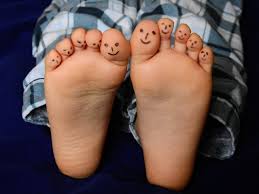Author/blogger Reggie Simpson
‘… a common condition you’ve never heard of …’.
Last week, Channel 5 aired a documentary on Restless Legs Syndrome (RLS) that has proved both compelling and sad, not least for its featured sufferers, but also other RLS sufferers and those who suffer along with it. It is estimated that one in 10 people in the UK have RLS.
RLS can occur occasionally for some and daily for others.
Sufferers in the documentary describe:
- Deep,
throbbing pain
- Unstoppable
urge to move their legs
- Tingling
pain
- Unpleasant
crawling or creeping sensation in the feet, calves and thighs and sometimes the
arms
- Isolation
- Poor step
pattern
- Disruption to daily activities
- Compromised relationships
One of the interviewee said ‘ You can it, bottle it, use it. It would be a brilliant torture method’ . Some sufferers even say that the condition makes them want to chop their legs off.
So, what is this condition (also known as Willis-Ekborn Disease) we know little to nothing about?
What causes RLS?
In the majority of cases, there is no obvious cause, although RLS can run in families, and women are twice as likely to develop RLS. Symptoms generally develop in middle age; however young people are also affected, particularly pregnant women.
Some neurologists believe the symptoms of RLS may have something to do with how the body handles a chemical called dopamine. Dopamine is a hormone that governs much of our brain activity. Low dopamine levels can lead to lack of motivation, fatigue, addictive behaviour, mood swings and memory loss. Indeed, Parkinson’s disease is linked to low levels of dopamine. Iron deficiency anaemia, diabetes, rheumatoid arthritis, Morton’s Neuroma, under-active thyroid or kidney disease) may also have an impact.
Treating RLS
Mild cases of RLS not linked to an underlying health condition might not need treatment other than some simple lifestyle changes:
- Adopting good sleep habits
- Losing weight
- Stopping smoking
- Reducing drinking and/or caffeine intake
- Exercise regularly
- Some medications (anti-depressants, lithium, some high blood pressure tablets, antihistamines)
Sadly, for regular sufferers of the condition, it is more about how to live with RLS, not cure it.
Resources
To view the Channel 5 documentary visit:
Other sources of information may be found at:
- www.nhs.uk/Conditions/Restless-leg-syndrome
- RLS-UK registered charity https://rls-uk.org/
- Your GP
- Your podiatrist
- Other healthcare professionals
If you think you have or have been diagnosed with RLS, please speak to us at Betafeet Podiatry to discuss how we might be able to help alleviate your pain. Equally, our associated healthcare professionals at Beta Health Clinic based in Hemel may be able to offer complementary options:






